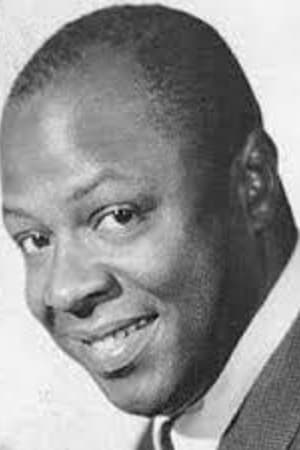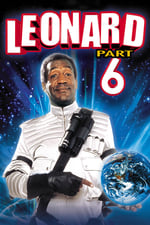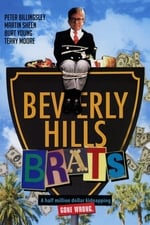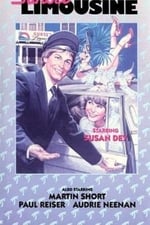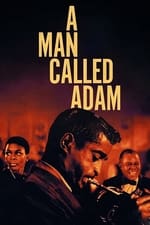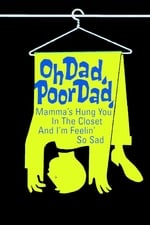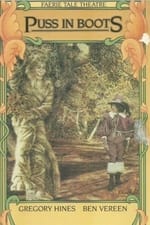Información personal
Conocido por Interpretación
Créditos conocidos 32
Sexo Masculino
Fecha de nacimiento 8 de junio de 1923
Fecha de defunción 30 de septiembre de 1995 (72 años)
Lugar de nacimiento Chicago, Illinois, USA
También conocido como
- -
Puntuación del contenido
100
¡Sí! ¡Buena pinta!
Iniciar sesión para informar de un problema
Biografía
George Kirby (June 8, 1923 – September 30, 1995) was an American comedian, singer, and actor from Chicago, Illinois.
Kirby broke into show business in the 1940s at the Club DeLisa, a South Side establishment that employed a variety-show format and preferred to hire local singers, dancers, and comedians. His first recording was as a stand-up blues singer, performing "Ice Man Blues" on a Tom Archia session done in 1947 for Aristocrat Records.
He was one of the first African-American comedians to begin to appeal to white as well as black audiences during the height of the Civil Rights era, appearing between 1966 and 1972 on The Ed Sullivan Show, The Dean Martin Show, The Jackie Gleason Show, Rowan and Martin's Laugh-In, and The Tonight Show Starring Johnny Carson. He was an excellent impressionist — targeting, somewhat scandalously for the time, many white actors such as John Wayne and Walter Brennan rather than solely black stars such as Bill Cosby and Pearl Bailey — and, for a man of his ample girth, an unexpectedly agile dancer. He also did vocal impressions of such singers as Louis Armstrong and Ella Fitzgerald.
In 1970, he was allowed to produce a television special, The George Kirby Show, to gauge whether he could attract an audience for a weekly series. This led to his hosting a sketch comedy and variety show, Half the George Kirby Comedy Hour, which lasted for 22 episodes in 1972; it was also one of the actor-comedian Steve Martin's first credits in front of the camera. The series was in many ways an uneasy compromise between Kirby's natural gifts and what the public would accept of black actors at the time; a regular feature was a shaggy dog story segment entitled the "Funky Fable". He was also a regular in the British-produced ABC Comedy Hour series The Kopycats, alongside such other impressionists as Rich Little, Charlie Callas, Marilyn Michaels, and Frank Gorshin.
Following the demise of his show, Kirby's career declined, especially as audiences began to look for more cutting-edge comedy. He had been an occasional drug addict; now, to make up for lost income, he took to selling drugs. In 1977 he sold heroin to an undercover cop; he plea bargained to a ten year prison term and was released after 42 months. His career never again reached its former heights, but he did register featured guest appearances on Gimme a Break with Nell Carter, Crazy Like a Fox, and 227. He then took ill with what was later diagnosed as Parkinson's Disease. He was well-loved enough within the comedy community that friends and admirers formed the "Friends of George Kirby", which performed an all-star tribute to him in 1995 to help pay his mounting medical bills, only a few months before he died.
Description above from the Wikipedia article George Kirby, licensed under CC-BY-SA, full list of contributors on Wikipedia.
George Kirby (June 8, 1923 – September 30, 1995) was an American comedian, singer, and actor from Chicago, Illinois.
Kirby broke into show business in the 1940s at the Club DeLisa, a South Side establishment that employed a variety-show format and preferred to hire local singers, dancers, and comedians. His first recording was as a stand-up blues singer, performing "Ice Man Blues" on a Tom Archia session done in 1947 for Aristocrat Records.
He was one of the first African-American comedians to begin to appeal to white as well as black audiences during the height of the Civil Rights era, appearing between 1966 and 1972 on The Ed Sullivan Show, The Dean Martin Show, The Jackie Gleason Show, Rowan and Martin's Laugh-In, and The Tonight Show Starring Johnny Carson. He was an excellent impressionist — targeting, somewhat scandalously for the time, many white actors such as John Wayne and Walter Brennan rather than solely black stars such as Bill Cosby and Pearl Bailey — and, for a man of his ample girth, an unexpectedly agile dancer. He also did vocal impressions of such singers as Louis Armstrong and Ella Fitzgerald.
In 1970, he was allowed to produce a television special, The George Kirby Show, to gauge whether he could attract an audience for a weekly series. This led to his hosting a sketch comedy and variety show, Half the George Kirby Comedy Hour, which lasted for 22 episodes in 1972; it was also one of the actor-comedian Steve Martin's first credits in front of the camera. The series was in many ways an uneasy compromise between Kirby's natural gifts and what the public would accept of black actors at the time; a regular feature was a shaggy dog story segment entitled the "Funky Fable". He was also a regular in the British-produced ABC Comedy Hour series The Kopycats, alongside such other impressionists as Rich Little, Charlie Callas, Marilyn Michaels, and Frank Gorshin.
Following the demise of his show, Kirby's career declined, especially as audiences began to look for more cutting-edge comedy. He had been an occasional drug addict; now, to make up for lost income, he took to selling drugs. In 1977 he sold heroin to an undercover cop; he plea bargained to a ten year prison term and was released after 42 months. His career never again reached its former heights, but he did register featured guest appearances on Gimme a Break with Nell Carter, Crazy Like a Fox, and 227. He then took ill with what was later diagnosed as Parkinson's Disease. He was well-loved enough within the comedy community that friends and admirers formed the "Friends of George Kirby", which performed an all-star tribute to him in 1995 to help pay his mounting medical bills, only a few months before he died.
Description above from the Wikipedia article George Kirby, licensed under CC-BY-SA, full list of contributors on Wikipedia.
